What the new FCC chairman could mean for net neutrality and your cable bill
Trump's pick supports market deregulation and opposes Open Internet
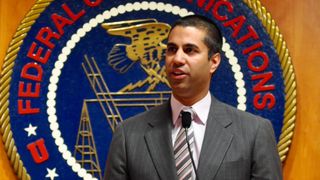
President Donald Trump’s Cabinet appointments have largely consisted of political outsiders looking to upend the status quo. His choice for acting FCC Chairman, current Republican Commissioner Ajit Pai, has the experience and qualifications for the role, but his leadership will likely be no less damaging to the established order of net neutrality laws and cable regulation.
Appointed by Barack Obama in 2013 onto the five-person FCC panel, Pai currently heads a 2-1 Republican majority after the previous chairman’s resignation. He doesn’t require Congressional approval to begin enacting regulations immediately, as his five-year appointment term does not expire until later this year. Congress will then have the option to confirm or reject his appointment.
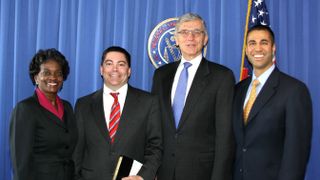
- On December 14, 2017, the US FCC (Federal Communications Commission) repealed net neutrality rules, sparking an outcry among startups, NGOs, but also the public in general, in the US or abroad. VPNs can actually allow you to get around Net Neutrality controls set by ISPs. Here is a list of the best VPN providers we've tested.
During his tenure as a Republican-minority commissioner, he frequently voted against and openly criticized regulations supporting net neutrality, internet service provider (ISP) privacy rules, and perceived overspending on programs spreading internet access to the poor. Pai favors free-market deregulation and has promised to take a “weed wacker” to the protections enacted by his predecessor that “hold back investment, innovation, and job creation.”
In light of Pai’s past stances and votes, here’s a look what his appointment could spell for the US cable and streaming markets and your rights (and bank accounts) as a consumer.
Not neutral on net neutrality
A Kansas native, Pai graduated with a BA from Harvard and a law degree from the University of Chicago. His extensive portfolio of legal work includes stints at Verizon, the Senate Judiciary Committee, the Department of Justice, and the FCC as a staffer before his eventual appointment as an FCC commissioner.
After his appointment in 2012, Pai immediately began making waves as a proponent of big business interests and curtailing regulations. When then-FCC Chairman Tom Wheeler proposed net neutrality regulations in 2015 under President Obama’s directive, Pai went on conservative radio, TV shows and Twitter to criticize the proposal as “a solution in search of a problem” that didn’t exist.
Here is President Obama's 332-page plan to regulate the Internet. I wish the public could see what's inside. pic.twitter.com/bwwAsk8ZiBFebruary 6, 2015
At the heart of the net neutrality debate is the question of whether cable companies have the right to charge certain sites for “fast lane” data speeds, or to artificially slow competitors’ websites down while providing users unlimited access to their own services. This issue received a great deal of media attention when Netflix revealed it had to paid Comcast a fee for the right to decent streaming speeds in 2014.
Get daily insight, inspiration and deals in your inbox
Get the hottest deals available in your inbox plus news, reviews, opinion, analysis and more from the TechRadar team.
In his 67-page dissent to the net neutrality regulations, Pai claimed the FCC was “turning its back on internet freedom” by restricting companies’ ability to control their data, for no other reason than, “President Obama told us to do so”. His FCC bio page states, “Consumers benefit most from competition, not preemptive regulation. Free markets have delivered more value to American consumers than highly regulated ones.”
Net neutrality passed 3-2 with Pai and his Republican colleague dissenting, and was upheld in federal court last year. The social media-savvy Pai responded by quoting Star Wars’ Emperor Palpatine, implying that the “young fool[s]” celebrating the decision were in for a surprise.
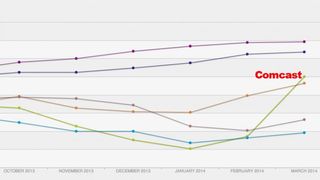
Now that Pai leads an FCC majority, he has the power to scale these regulations back. He told Business Insider in 2015 that he favored “targeted action...within its authority” against specific company policies instead of “preemptive industry-wide sweeping negotiations.”
Proponents of net neutrality can rest assured that he can’t simply get rid of these regulations immediately. In a speech at the Aspen Institute, outgoing Chairman Wheeler argued that under the FCC’s Administrative Procedure Act, Pai must prove that something has changed since the Open Internet Order was signed in 2015 to justify new regulations. Simply disliking the rule isn’t a strong enough argument to legally abolish it when cable companies have no proof that net neutrality caused them financial hardship.
Thus, Pai’s first step may simply be to stop enforcing existing regulations and let companies do as they will. Just this December, for instance, the FCC sent letters to AT&T and Verizon claiming they had violated net neutrality laws with their free data streaming programs. The letters noted that the service “strongly favors [their] own video offerings” with free data, while limiting online competitors’ “ability to offer competing video services...on a level playing field.” Pai mocked this announcement as a “regulatory spasm [that] will not have any impact” on his policy making once he assumes control.
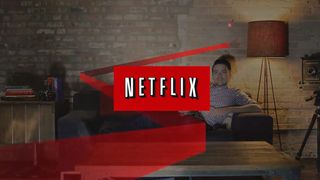
What could this ultimately mean for users? Maybe not much on the surface. Cable companies will continue to provide attractive unlimited streaming packages that give them advantages over online-only competitors.
Sites like Netflix and YouTube may be forced to once again pay for the right to unfettered data access on various ISPs. Though these services can afford it, they could theoretically use these payments as justification for increased subscription costs, passing the buck down to consumers.
Moreoever, small businesses and startups may languish under these unregulated monopolies. Chris Lewis, VP of government affairs at tech advocacy group Public Knowledge, told CNN Money that, “It's the small businesses that are creating new services online and creating jobs that will be at risk because they may not have the financing or the power that a big conglomerate like Google or Netflix has to protect themselves.”
Putting cable back in power
Pai’s attitude towards the rights of cable companies and the free market shine a light into the hands-off regulatory approach he’ll likely take as FCC Chairman. Pai supported the failed Time Warner-Comcast merger of 2014, and only vetoed the recent Time Warner-Charter merger because he considered the FCC’s conditions safeguarding consumer interest “ideologically inspired extortion.”
Pai worries little about cable-telecom monopolies dominating the market, and thinks companies should be allowed to merge with no consumer-protection strings attached.
His mega-merger support may actually prove to be a rift between himself and President Trump. Trump has repeatedly denounced the proposed AT&T-Time Warner and Comcast-NBCUniversal deals as placing too much media power into individual companies, while Pai’s voting record shows he will likely approve of these deals.
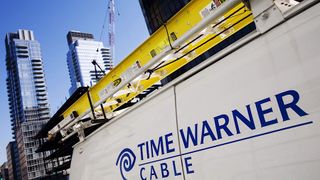
In general, Pai believes FCC regulations target cable companies with regulations that put them at a disadvantage to online corporations like Google, Facebook and Netflix, which have their own competing video and telecom services without cable’s restrictions.
For instance, when the FCC ruled that ISPs must ask users for permission before sharing their browsing history with advertisers, Pai dissented, insisting that if Google and Facebook can legally sell users’ information without consequence, ISPs deserve the same leniency.
Wheeler countered with the argument that, “We can choose not to visit a website or sign up for a social network,” but “once you subscribe to an internet service provider - for your home or for your smartphone - you have little flexibility to change your mind or avoid that network."
Pai may reinstate ISPs’ rights to sell your data and take away your right to protect your privacy, assuming again that he finds cause to overturn recent regulation. And as cable companies continue to merge unopposed and dominate the market, this may limit consumers’ ability to have a real choice in their service or avoid price gouging.
Predicting Pai’s impact on internet accessibility
Pai’s attitude towards consumer rights and market freedom may worry net neutrality advocates, but not all of his policy platforms are necessarily anti-consumer. As a Kansas native, Pai supports improving nationwide internet access, especially in rural areas.
Last year, he approached Congress with a plan to “provide financial incentives for internet service providers to deploy gigabit broadband services in low-income neighborhoods.” He wants to improve local internet infrastructure, pushing fiber over slower, outdated copper systems. And he has supported bipartisan measures in the past that help the underserved, such as people with disabilities.

Still, his plans for improving future net access should not obfuscate how his policies will impact US citizens in the immediate future. Pai will likely scuttle the Lifeline program that provides $9/month internet access for the poor, asserting it is full of “waste, fraud, and abuse”. His voting record supports limiting regulations on cable companies to promote a free market while simultaneously allowing mergers that limit price competition and consumer options.
Pai also may sit and watch as companies like AT&T and Verizon create a tiered internet, in which users may find their favorite sites can only stream properly on a competing ISP. And cable companies could very soon restart their practice of selling your entire browsing history to advertisers, without fear of reprisal.
Ultimately, we have no way of knowing what Pai thinks will qualify for his FCC’s “targeted action”. Evidently, breaking current net neutrality laws doesn’t. But the short-lived days of internet being treated as a protected public utility have just ended. His predecessor Wheeler declared the internet must be “fair, fast and open,” but Pai’s vision of a free internet, controlled and monetized by a few corporate gatekeepers, may not fit any of those criteria.
Michael Hicks began his freelance writing career with TechRadar in 2016, covering emerging tech like VR and self-driving cars. Nowadays, he works as a staff editor for Android Central, but still writes occasional TR reviews, how-tos and explainers on phones, tablets, smart home devices, and other tech.

